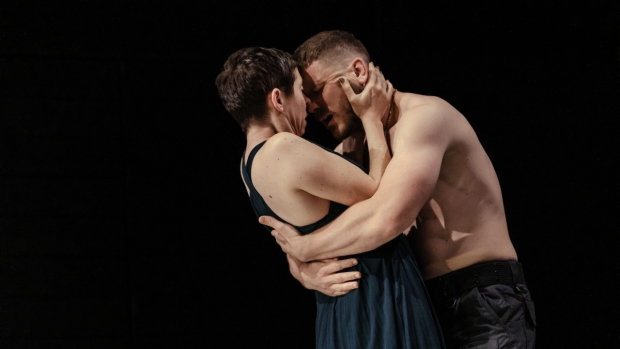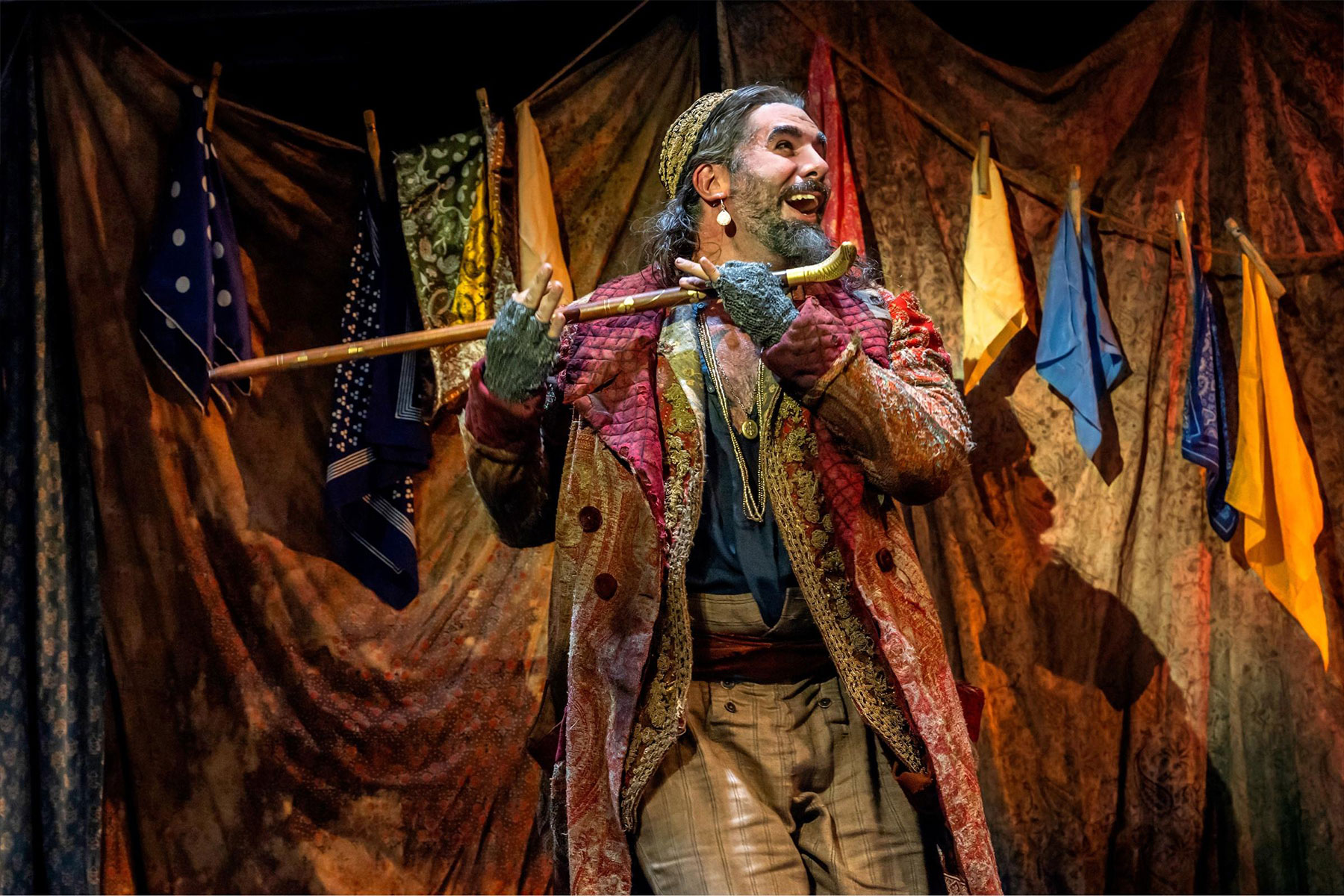Girl on an Altar at the Kiln Theatre – review

© Peter Searle
If Girl on an Altar is your first encounter with the story of Clytemnestra, you might be surprised at hearing just how quick she is to get her hands bloody in Aeschylus’ telling – almost immediately, in fact. In Marina Carr’s new adaptation, it takes years. Carr elongates the moment between Agamemnon’s return from the Trojan War to his wife and the vengeance she takes for his sacrifice of their daughter Iphigenia, holding everything in a furious suspense.
It’s a choice that proves baffling. Produced in partnership with the Abbey Theatre, this is a psychologically-grounded version, running its characters aground in the darkness of the Kiln without much thought for the gods. Enough time passes that the story soon veers sharply away from the usual path, with Clytemnestra forced to share the same palace as Cassandra, Agamemnon’s Trojan captive, to give up her own lover and reacclimatise to the presence of the the husband she hates.
Though Annabelle Comyn’s direction makes a game attempt at Carr’s script – which is often very striking, considered and poetic – it falls down at just how much narration there is. Though the writing skips between memory and the present and describing duty is passed with care between the actors, the floaty blocking keeps us at an emotional distance. Characters are often uncomfortably present in the palace, watching each other, with an unvarying wary dread.
Eileen Walsh (a Marina Carr veteran) is a glorious Clytemnestra, wry with a wine glass in her hand or a balletic crawler across the stage, physically twisting herself up with the guilt she knows she shares only with Agamemnon. Remembering his arms as she narrates the moment of Iphegenia’s death, she holds up her own in horror. David Walmsley’s statuesque Agamemnon is greedily tactile, a king incapable of being humbled despite his grief. Ingrid Mackinnon’s movement and intimacy direction has a great, sick heat when the two have to peel themselves off each other.
For all Carr’s elongation and expansion of the story, the couple are the real concern and heart of the play, which thrums when they’re facing. As his affair with Clytemnestra is accordingly minimised, Daon Broni’s sophisticate Aegisthus doesn’t get much of a look in, though there’s an interesting underexplored contrast in attitude to battle compared to his burly cousin Agamemnon. Clytemnestra’s Amazonian ex-slave Cilissa is played by Kate Stanley-Brennan with a steely posture, almost always present, while Jim Findlay shines in his beaming and kindly brief turn as Clytemnestra’s father Tyndareus. Though Nina Bowers’ upright and lucid Cassandra is allowed to live long enough to dare to hope for herself, we can’t hope along with her.
It doesn’t feel as if breaking point is approached, despite the play’s two and a half hour length: with so much standing around, the pace drags despite the strength of the performances and the richness of the writing. Carr’s versions of Clytemnestra and Agamemnon are both ancestors of Hamlet, almost willing the other to make the move and kill them to spare themselves having to. Despite how torturous this suspended situation is for everyone, and how much time is spent even very baldly telling us just how plausible it is that Clytemnestra can’t quite bring herself to act, there’s a distinct lack of urgency.
The marital bed looms large in Tom Piper’s set, surrounded by black gravel, as unmoving as the characters. Amy Mae’s lighting design is sweeping and beautiful, sometimes picking out the actors through the walls’ black wooden slats, while the lighter touches of Philip Stewart’s sound linger: running water and rain, some burbling guitar. There are some stranger choices, with moments of projection onto the unraked stage difficult to see for anyone seated in the stalls and an under-utilised golden chamber behind huge doors.
Walsh is utterly commanding, but both the premise and the direction needlessly maroon her. The extremity of Clytemnestra’s pain isn’t sharpened by immobilising and humiliating her further than the myth usually does. When it eventually comes to a literal battle being mounted over her, it feels a little as if the lede’s been buried. Just like the Trojan War and her sister Helen, yes. But to what end?












